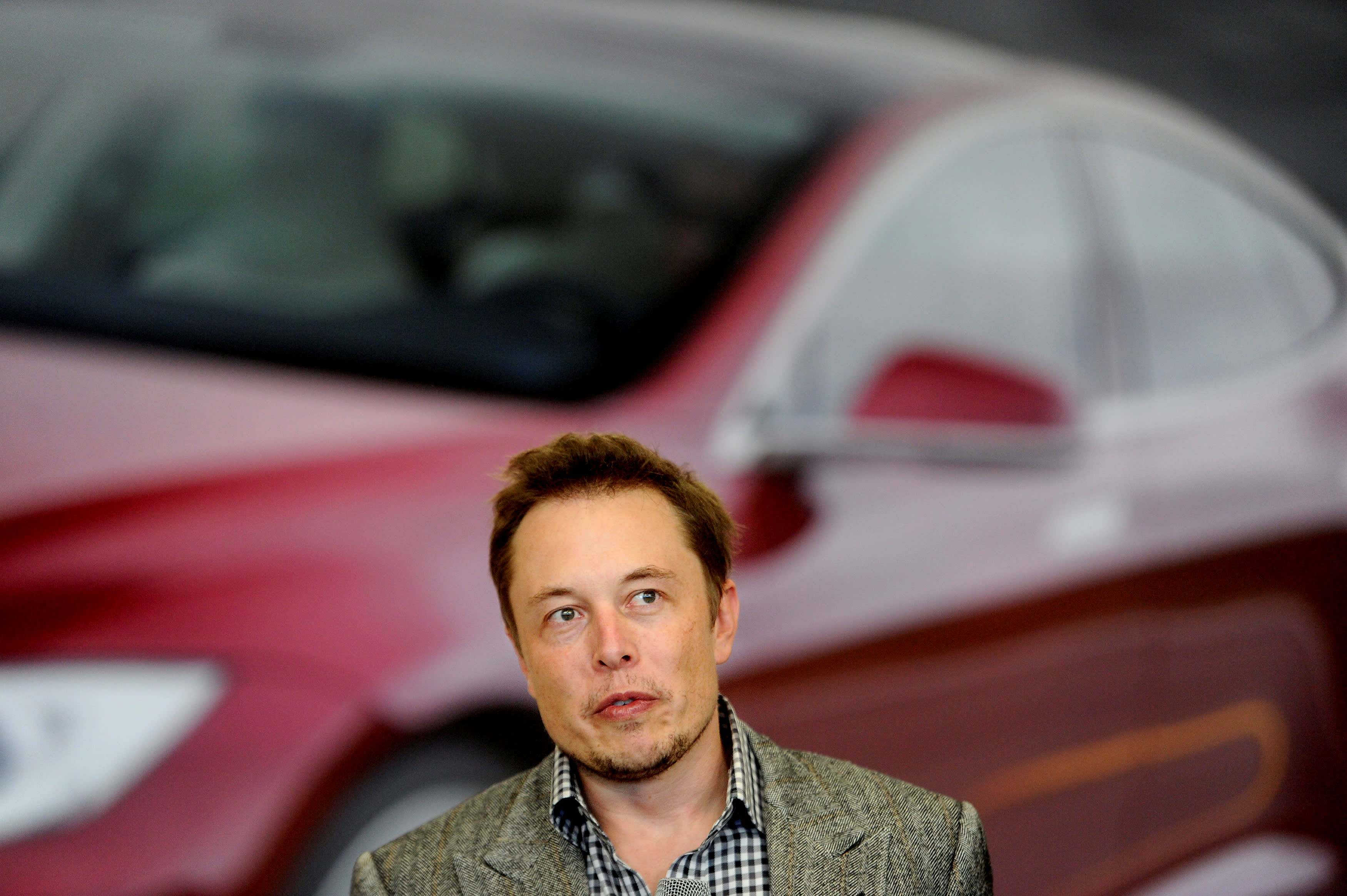
Tesla plans to host its annual shareholder meeting, followed by a "battery technology day" presentation, on Tuesday, September 22.
Elon Musk's electric car company is likely to disclose specifications for at least one new type of battery cell that the company has been developing, and may give an aspiring start-date for manufacturing its own cells at scale, too. As CNBC previously reported, Tesla has established a prototype manufacturing line for battery cells at their skunkworks lab in Fremont, California, near its U.S. car plant.
Since January 2017, the EV maker has mass manufactured battery cells for its cars and energy storage products at its Gigafactory near Reno, Nevada, with its partner, main battery cell supplier, and co-investor in the facility, Panasonic.
More recently, Tesla began sourcing cells from CATL and LG, and making battery packs for the made-in-China (MIC) version of its Model 3 sedans with these at a newer vehicle assembly plant in Shanghai. The Tesla MIC vehicles are now sold in China, with some set for export to Europe.
In August, Panasonic planned to invest $100 million to set up a new cell production line at the Nevada Gigafactory, the Nikkei first reported.
In general, Tesla's battery team looks for ways to drive down the costs of production, increase the lifetime and charging speed of their batteries, and make sure their batteries are safe for use in electric vehicles.
According to people familiar with Tesla's internal goals for battery cells, the company has been gunning to deliver more than a 70% improvement in the power density of their cells versus the 2170 cells that they buy from Panasonic.
If Tesla figures out how to make and integrate higher performance battery cells into its vehicles, its cars -- and someday, trucks -- could travel more miles per charge, could be lighter weight, and could cost the company less to produce.
AutoForecast Solutions' research analyst for new energy vehicles, Conrad Layson, noted that a lot of automakers are now looking at a way to position themselves at the top of the EV market, which represents about 3.5% of new vehicle consumption worldwide.
He said, "If [Tesla] decides to go ahead and make their new battery cells, the 'Road Runner' cells, then they will be realizing a strategy that's about control. They would be able to make batteries to their specifications without paying anybody else, or waiting on anybody else for development. They want to be able to control this internally and probably produce in quantity. For now, they are going to be reliant on their cell suppliers."
Volatility likely
Tesla events like "battery technology day," often lead to stock price volatility for Tesla, with shares often increasing around the date of the event. But what CEO Elon Musk promotes at these events does not necessarily manifest into real or successful products on the timeline announced.
In October 2016, Elon Musk showed off solar glass roof tiles in a demo that helped Tesla convince investors to approve a $2.6 billion acquisition of SolarCity. To this day, Tesla is not making or installing solar glass roof tiles in a significant volume.
In April 2019, at an "autonomy day" presentation, Musk said Tesla expected to be "feature-complete in self driving this year." He also said, "We expect to be confident enough, from our standpoint, to say that we think people do not need to touch the wheel and can look out the window," while driving Tesla vehicles with the Full Self-Driving option, by the second quarter of 2020.
But this summer, Musk revealed that the company's automated driving system dubbed FSD was going through a "fundamental rewrite."
Specifically, on August 14, 2020, Musk wrote in a tweet: "The FSD improvement will come as a quantum leap, because it's a fundamental architectural rewrite, not an incremental tweak. I drive the bleeding edge alpha build in my car personally. Almost at zero interventions between home & work. Limited public release in 6 to 10 weeks."
Musk tweet
Analysts gave shares of Tesla a price target boost this week leading up to battery day: Wedbush increased their price target from $380 to $475; Piper Jaffray from $480 to $515; Deutsche Bank from $300 to $400; and Credit Suisse from $280 to $400.
The company's stock closed at $442.15 on Friday, and is up 428% for the year.
tinyurlis.gdv.gdv.htu.nuclck.ruulvis.netshrtco.detny.im
مقالات مشابه
- شرکت صادرات و واردات کالاهای مختلف از جمله کاشی و سرامیک و ارائه دهنده خدمات ترانزیت و بارگیری دریایی و ریلی و ترخیص کالا برای کشورهای مختلف از جمله روسیه و کشورهای حوزه cis و سایر نقاط جهان - بازرگانی علی قانعی
- پرتاب موشک کره شمالی دیپلمات آمریکایی را بر آن داشت که بار دیگر بر فشار برای از بین بردن سلاح های هسته ای تاکید کند
- این 15 بهترین شهرها برای حرکت به اگر شما می خواهید برای ذخیره پول
- شرکت صادرات و واردات کالاهای مختلف از جمله کاشی و سرامیک و ارائه دهنده خدمات ترانزیت و بارگیری دریایی و ریلی و ترخیص کالا برای کشورهای مختلف از جمله روسیه و کشورهای حوزه cis و سایر نقاط جهان - بازرگانی علی قانعی
- مراجعه به متخصص ارتوپد شیراز درمانی مؤثر برای آرتروز
- لیپوساکشن راهی برای درمان چاقی نیست!
- خانه با هدف عبور از 3 تریلیون coronavirus بسته امداد جمعه
- بررسی فاکتورهای رتبه بندی سئو
- کشورهای OECD ورود بدترین سه ماهه انقباض در تولید ناخالص داخلی پس از بحران مالی
- مغلوب ساختن پیشی جستن دیده می شود "شفاعت با چین شی جین پینگ" را به اطمینان حاصل شود 2020 برنده: Ex-مشاور در کتاب